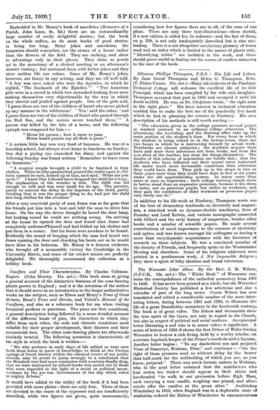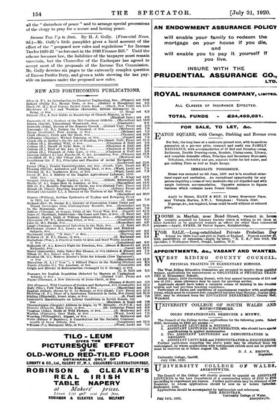The Worcester Liber Altrua. By the Rev. J. M. Wilson.
(S.P.C.K. 15s. net.)—The " White Book " of Worcester con- tains the correspondence of the cathedral monastery from 1301 to 1446. It has never been printed as a whole, but the Worcester Historical Society has published a few selections and also a. calendar of part of the long series. Canon Wilson has now translated and edited a considerable number of the more inter- esting letters, dating between 1301 and 1338, to illustrate the life of a great Benedictine monastery in the fourteenth century. The book is of great value. The letters and documents show the true spirit of the times, not only in regard to the Church, but also in respect of political and social matters. An episcopal letter liberating a serf who is in minor orders is significant. A series of letters of 1305-6 shows the first Prince of Wales forcing Worcester to bestow a. rich living, held by a worthy scholar, on a certain Ingelard, keeper of the Prince's wardrobe and a layman. Another letter begins : " To my disobedient son and perjured Vicar of Stanweye, Wulstan, Prior," and continues :—" On the sight of these presents send us without delay by the bearer that half-mark for the withholding of which you are, as you know, perjured." There was much human nature in Wulstan, who in the next letter ordained that the malefactors who had stolen his timber should appear in their shirts and bareheaded "to walk in our procession before High Mass, each carrying a wax candle, weighing one pound, and after- wards offer the candles at the great altar." Archbishop Winchelsey in 1312, when England was in a deplorable state of confusion, ordered the Bishop of Winchester to excommunicate all the " disturbers of peace " and to arrange special processions of the clergy to pray for a secure and lasting peace.



































 Previous page
Previous page